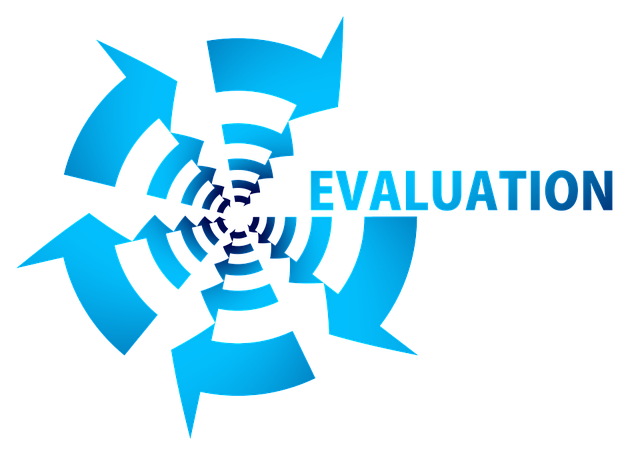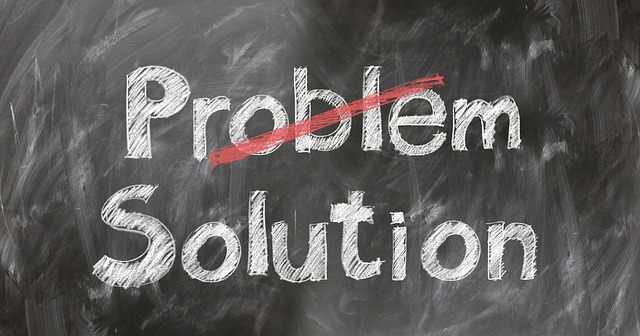Blockchain technology has been making waves in various industries, and healthcare is no exception. As the need for secure and efficient management of sensitive, health records and data grows, the potential of blockchain in transforming the healthcare sector seems more significant than ever. In this blog post, we’ll dive deep into the world of healthcare blockchain, exploring its key features, benefits, and top software solutions, as well as implementation strategies and challenges to overcome. Let’s embark on this exciting journey together, as we uncover the best healthcare blockchain software solutions of 2023!
Short Summary
- Blockchain technology offers secure and transparent solutions to manage electronic medical records.
- Evaluating healthcare software solutions requires considering factors such as functionality, security, scalability, performance & organizational needs.
- Adopting internal processes & expanding tech stack are key for successful implementation of healthcare blockchain. Collaboration is essential for overcoming challenges in adoption.
➡️ ACCELERATE YOUR AI & BLOCKCHAIN DEVELOPMENT WITH OUR PARTNERS! ⬅️
Understanding Healthcare Blockchain Technology

Blockchain technology, a decentralized and distributed ledger technology, is revolutionizing the way we manage electronic medical records (EMRs). In an industry where seamless and secure access to patient data is critical, blockchain offers a robust solution that meets the unique requirements of the healthcare sector. By providing secure data storage, data sharing consent management, and patient control over record sharing, blockchain technology enhances data security, increases transparency, and streamlines the overall healthcare system.
Moreover, healthcare blockchain has the potential to revolutionize other aspects of the industry, such as supply chain management and clinical trials. For instance, genomics, the study of genes and their functions, can greatly benefit from healthcare blockchain technology, as it facilitates progress in pharmaceutical research.
As we delve deeper into the world of healthcare blockchain, let’s explore its key features and the benefits it brings to different stakeholders and healthcare professionals.
Key features of healthcare blockchain
One of the most notable features of healthcare blockchain is its ability to offer secure data storage, data sharing consent management, and patient control over record sharing. This ensures that sensitive health data remains protected while still enabling seamless communication between healthcare providers. Furthermore, the use of blockchain technology for drug traceability provides an immutable record of drug product movement, effectively combating counterfeit drugs and ensuring patient safety.
Another significant feature of healthcare blockchain is the incorporation of smart contracts, which are self-executing agreements with the terms directly written into code. This enables automated enforcement of commitments, resulting in increased efficiency for the healthcare system. In addition to these core features, healthcare blockchain solutions focus on configuring data layers and verifying the origin and destination of sensitive data, in real-time, ensuring a high level of data integrity.
Benefits for different stakeholders
The adoption of healthcare blockchain technology offers a myriad of benefits for different stakeholders, including patients, healthcare providers, and pharmaceutical companies. For patients, blockchain empowers them to take control of their medical data and engage in research without intermediaries, while securely storing data from wearable medical devices. Healthcare providers can also benefit from rapid authentication of personnel credentials and a secure repository for credential details.
On the other hand, pharmaceutical companies can leverage blockchain technology to enhance supply chain management, ensuring that all parties have access to the same data and that the data is securely stored and shared via the blockchain. Other, healthcare services companies, acknowledge the potential of blockchain to expedite the care process, automate administrative processes, and enhance health outcomes.
By providing these benefits, healthcare blockchain technology holds the key to transforming the healthcare industry.
➡️ FIND EASY AI & BLOCKCHAIN APPLICATIONS & SOFTWARE SOLUTIONS ⬅️
Evaluating Healthcare Blockchain Software Solutions

When assessing healthcare blockchain software solutions, it is crucial to consider factors such as functionality and features, security and compliance, scalability and performance. Each of these factors plays a vital role in ensuring the success of a healthcare blockchain solution, and striking the right balance between them can make all the difference.
To make an informed decision, it is essential to examine the specific needs of your organization and the unique requirements of the healthcare industry. This includes taking into account the various laws and regulations that govern the handling of sensitive health data, as well as the technical capabilities of the solution itself in managing patient health data, patient records and other healthcare data.
Let’s take a closer look at these factors and how they can influence the evaluation process.
Functionality and features

When evaluating healthcare blockchain software solutions, it is important to consider the functionality and features they offer. The solution should provide secure data storage, data sharing, patient consent forms and management, and patient control over record sharing, as these are the primary characteristics of healthcare blockchain. Additionally, the solution should implement encryption, authentication, and authorization protocols to ensure data security.
Moreover, the solution should be scalable to accommodate an expanding workload or dataset. This can be achieved through the implementation of sharding, sidechains, and other scaling solutions.
Lastly, fostering transparency and community support is essential for the success of a healthcare blockchain solution. Leveraging open-source code, decentralized governance, and community-driven development can contribute to this goal.
➡️ LOOKING TO COLLABORATE AND ACCELERATE YOUR DEVELOPMENT? ⬅️
Security and compliance
Security and compliance are crucial aspects to consider when evaluating healthcare blockchain software solutions. Ensuring the security of sensitive health data requires implementing encryption, access control, auditability, and compliance with industry standards. Furthermore, the consensus mechanism, which ensures all nodes in the network agree on the same data, is a significant factor in maintaining security.
Compliance with data privacy regulations, such as the General Data Protection Regulation (GDPR), California Consumer Privacy Act (CCPA), and Data Protection Act (DPA), is essential for healthcare blockchain solutions. By adhering to these regulations and implementing the necessary security measures, healthcare blockchain software solutions can provide a secure and compliant environment for managing sensitive health data, including genetic data.
Scalability and performance
Scalability and performance are vital factors to consider when assessing healthcare blockchain software solutions. A scalable solution should be capable of accommodating an expanding workload or dataset, playing a significant role in the evaluation process.
In order to ensure optimal performance, healthcare blockchain software solutions should focus on reducing latency, increasing throughput, and ensuring scalability. This can be achieved through the implementation of innovative technologies and approaches, such as sharding, sidechains, and other scaling solutions.
By prioritizing scalability and performance, healthcare blockchain software solutions can provide an efficient and reliable platform for managing sensitive health data.
Top Healthcare Blockchain Software Solutions

Now that we have explored the key features, benefits, and factors to consider when evaluating healthcare blockchain software solutions, let’s take a look at some of the top options available in the market. Two of the most popular healthcare blockchain solutions are Medicalchain and Blockpharma. Both solutions offer unique features and benefits that can help transform the healthcare industry.
Medicalchain provides a secure network for sharing patient data, while Blockpharma utilizes blockchain technology to trace the legitimacy of pharmaceuticals and monitor their supply chain from manufacturing to end customers.
Let’s dive deeper into these top healthcare blockchain companies’ software solutions and learn more about what they have to offer.
Medicalchain
Medicalchain is a blockchain solution designed to safeguard the accuracy of patient medical records and secure patient identity. By offering a secure platform for healthcare providers to access and share patient data, Medicalchain helps improve transparency of healthcare information and provides flexible prospects for audit.
Medicalchain not only offers core functionalities, but has also released a platform which enables individuals to connect with their doctor via video; payments are accepted in the form of Medtoken. Medicalchain’s commitment to innovation extends beyond traditional healthcare, as evidenced by its partnership with Dentacoin, a healthcare blockchain startup that provides innovative solutions for the dental industry. You can find case studies and reviews for Medicalchain on Bluesky Intel.
Blockpharma
Blockpharma is a healthcare blockchain startup that addresses the global issue of substandard and counterfeit pharmaceuticals. This has a significant impact on the emergence of drug-resistant illnesses and antimicrobial resistance, resulting in more than 800,000 deaths per year. By utilizing a blockchain-based medical supply chains and chain management system, Blockpharma can effectively detect counterfeit medicines and ensure patient safety.
In addition to its core functionalities, Blockpharma provides a mobile application that allows patients to verify the authenticity of their medicines. By leveraging blockchain technology, Blockpharma not only enhances the security and traceability of pharmaceuticals, but also helps combat the growing threat of counterfeit drugs and their devastating consequences on global health. You can find case studies and reviews for Blockpharma on Bluesky Intel.
Implementation Strategies for Healthcare Blockchain Solutions

Successfully implementing healthcare blockchain solutions requires a well-planned strategy that takes into account internal process adaptation, tech stack expansion, and collaboration and partnerships. These strategies ensure a smooth transition and integration of blockchain technology into the healthcare system.
Consulting professional healthcare software development companies is recommended for successful implementation of healthcare blockchain solutions. By leveraging their expertise and resources, healthcare organizations can effectively navigate the complexities of blockchain technology and successfully implement blockchain solutions that align with their specific needs and goals.
Internal process adaptation
Adapting internal processes is a critical step in implementing healthcare blockchain solutions. This includes modifying data management processes to ensure secure storage and sharing of data on the blockchain. Similarly, supply chain management processes should be updated to guarantee that all relevant parties have access to the same data, and that the data is securely stored and shared via the blockchain.
Moreover, security protocols should be adjusted to ensure data is securely stored and shared on the blockchain. By making these necessary adaptations, healthcare organizations can lay the groundwork for a successful implementation of blockchain technology in their operations.
Tech stack expansion
Expanding the tech stack is essential for healthcare blockchain solutions to achieve their full potential. The specific technologies to be considered depend on the solution’s needs, but commonly used technologies include JavaScript, TypeScript, React, Antdesign, Java, PostgreSQL, and blockchain networks.
Incorporating these technologies into the existing tech stack can provide a solid foundation for the development and deployment of healthcare blockchain software solutions.
Collaboration and partnerships
Collaboration and partnerships are crucial for the success of healthcare blockchain solutions. By joining forces with technology companies, blockchain startups, and healthcare providers, organizations can maximize the potential of blockchain use cases in healthcare. Establishing these strategic alliances can also help healthcare organizations overcome regulatory, legal, and technical challenges associated with the adoption of blockchain technology.
By forming strategic partnerships and collaborations, healthcare organizations can effectively harness the power of artificial intelligence and blockchain technology to transform the healthcare industry.
➡️ FIND EASY AI & BLOCKCHAIN APPLICATIONS & SOFTWARE SOLUTIONS ⬅️
Overcoming Challenges in Healthcare Blockchain Adoption

Adopting healthcare blockchain technology comes with its fair share of challenges, such as balancing security, scalability, and decentralization, complying with data privacy regulations, and managing user adoption and change management.
However, overcoming these challenges is essential for the successful integration of blockchain technology into the healthcare system. By thoroughly understanding the complexities of healthcare blockchain technology and implementing well-planned strategies, healthcare organizations can successfully navigate these challenges. Bluekyintel.com makes it easy to unlock the full potential of blockchain technology in transforming the healthcare industry.
Balancing security, scalability, and decentralization
Achieving equilibrium between security, scalability, and decentralization in healthcare blockchain solutions is paramount in order to guarantee the most beneficial outcome for the healthcare industry. This balance ensures that the solution is tailored to the specific requirements of the healthcare sector while still maintaining an equilibrium between the three factors.
When weighing the factors of security, scalability, and decentralization for healthcare blockchain solutions, it is essential to make trade-offs to guarantee the most successful outcome. This could include compromising one factor for another, such as prioritizing scalability over heightened security or vice versa, depending on the unique needs of the healthcare organization.
Compliance with data privacy regulations
Compliance with data privacy regulations is critical to the successful implementation of healthcare blockchain solutions. Healthcare organizations must adhere to global data protection and privacy laws such as GDPR, CCPA, and DPA to ensure that sensitive health data is collected, stored, and used responsibly and securely.
To achieve compliance, healthcare blockchain solutions should implement encryption, verification of data integrity, and adhere to the relevant data privacy regulations. By taking these necessary precautions, healthcare organizations can safeguard patient privacy and ensure that their blockchain healthcare solutions will remain compliant with data privacy regulations.
User adoption and change management
Managing user adoption and change management is a crucial aspect of implementing healthcare blockchain solutions. Organizations must address regulatory and legal challenges, provide education and training, and emphasize the benefits of the technology to ensure successful user adoption.
A “minimal but sufficient” approach to data on the blockchain can be taken while constructing a secure and compliant system to guarantee user acceptance of healthcare blockchain solutions. By addressing these challenges and taking proactive measures to ensure user adoption, healthcare organizations can successfully integrate blockchain technology into their operations and unlock its full potential.
Summary
In conclusion, healthcare blockchain technology holds the key to transforming the healthcare industry by enhancing data security, streamlining processes, and offering a myriad of benefits for different stakeholders. By evaluating top healthcare blockchain software solutions, implementing well-planned strategies, and overcoming challenges in adoption, healthcare organizations can harness the power of blockchain technology to revolutionize the way we manage sensitive health data and improve patient care. As we look towards the future, the potential of healthcare blockchain technology in shaping the healthcare industry is more significant than ever, and it is up to us to seize this opportunity and redefine the boundaries of healthcare.
➡️ FIND EASY AI & BLOCKCHAIN APPLICATIONS & SOFTWARE SOLUTIONS ⬅️
- What is Machine Learning? A Comprehensive Overview
- Understanding What is Probability Theory in AI: A Simple Guide
- Understanding Neural Networks: What is a Neural Network and How Does it Power AI?
- AI and Human Collaboration: Enhancing Efficiency and Empathy
- Mastering AI Integration: Your Essential Guide on How to Implement AI in Business
Frequently Asked Questions
Which blockchain is best for healthcare?
There is no one-size-fits-all blockchain solution for healthcare. The industry covers so many niche markets and variables that healthcare providers will need to do a little research to find the right fit for their products and services.
How do I choose the best blockchain platform?
Choosing the best blockchain platform for your business depends on several criteria such as scalability, cost, security, privacy and public vs. private options. Additionally, it is important to consider the consensus mechanism, speed of transactions and platform adoption rate.
Assessing these factors will help you find the most suitable platform for your needs.
Which blockchain is used in healthcare?
Patientory is a commonly used blockchain platform in healthcare. It allows for secure storage and transfer of patient data via an end-to-end encryption system. You can find case studies and reviews for Patientory on Bluesky Intel.
What is the downside of blockchain in healthcare?
The downside of blockchain in healthcare include scalability issues, lack of standardization, interoperability, potential data privacy infringement, lack of technical expertise, and difficulty querying large patient files. Furthermore, a lack of change management and ownership can also pose significant risks.
